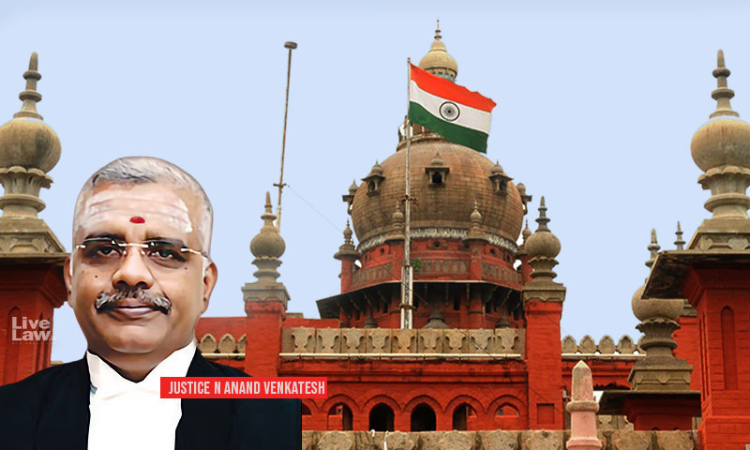- Home
- /
- High Courts
- /
- Madras High Court
- /
- When Rights Of Minority...
When Rights Of Minority Institutions Are Threatened, Courts Must Interfere To Reaffirm Foundational Ideas Of Justice & Equality: Madras HC
Upasana Sajeev
1 April 2025 4:50 PM IST
While reiterating that the UGC norms for the selection of Assistant professors and the Principal do not apply to minority institutions, the Madras High Court recently emphasised the need to protect the rights of minority institutions. Justice Anand Venkatesh remarked that the Constitution had included provisions to safeguard the rights of the minority institutions, to protect the...
While reiterating that the UGC norms for the selection of Assistant professors and the Principal do not apply to minority institutions, the Madras High Court recently emphasised the need to protect the rights of minority institutions.
Justice Anand Venkatesh remarked that the Constitution had included provisions to safeguard the rights of the minority institutions, to protect the cultural and educational identity of the minority communities.
The judge added that when these rights are threatened, the Constitutional Courts have a duty to intervene and reaffirm their commitment to ensure that the foundational ideals of justice and equality are upheld.
“The Constitution of India, a beacon of hope, enshrined these assurances, particularly through Article 30(1), which guarantees minorities the right to establish and administer educational institutions of their choice. This provision was not merely a legal formality. It was a promise made by the framers to protect the cultural and educational identities of minority communities. In instances where these rights are threatened, it is imperative that Constitutional Courts intervene decisively to reaffirm this commitment ensuring that the foundational ideals of justice and equality are upheld. The Judiciary must recognize its pivotal role in restoring confidence among minorities, acting as a guardian of the rights that were pledged to them, thus reinforcing the very essence of India's democratic ethos and its dedication to unity in diversity,” the court said.
The court was hearing petitions filed by four autonomous colleges and one non-autonomous college seeking direction to respective Universities to grant approval for the appointment to the post of Assistant Professor and Principal respectively.
The colleges argued that the UGC Regulation 2018, which was adopted by the State Government through a Government Order in 2021 could not be put against the minority institution by insisting that the selection process by constituting a Selection Committee. It was argued that such insistence would violate the fundamental rights guaranteed to the minority institutions under Article 30(1) of the Constitution.
The UGC, on the other hand, contended that the 2018 Regulation was applicable to all institutions, including minority institutions, whether aided or self-financing. Explaining further, the UGC submitted that for a minority institution, the Selection Committee is appointed from the list of persons suggested by the minority institution as provided under the UGC Regulation. It was submitted that the insistence was to maintain standards in higher education and does not interfere with the fundamental rights of the institution.
The State and the universities submitted that approval could not be granted for appointments made unless the selection is made in accordance with the mandate provided under the UGC Regulations 2018. Thus, arguing that the selection made by the colleges was not sustainable, they sought for the dismissal of the writ petitions.
Following the earlier decision of the court that held that the 2000 and 2010 regulations did not apply to the minority institutions, the court held that the 2018 regulation also did not apply to the minority institution. The court held that the UGC Regulation directly interfered with the overall administrative control by the management, which dilute/abridge the minority institution's right to establish and administer educational institution.
The court also noted that as per the 2018 Regulation, for the selection of the Principal, the Selection Committee was even more stringent and included outsiders recommended by the Vice Chancellor. Though UGC argued that some of these outsiders belonged to the minority community, the court said that it did not matter as such inclusion would dilute the rights of the institution.
Thus, concluding that the 2018 Regulation does not apply to minority institutions, the court directed the Universities to grant approval to the selection made by the colleges subject to the candidates fulfilling other qualifications.
Counsel for Petitioner: Mr. Isaac Mohanlal, SC for M/s. Isaac Chambers
Counsel for Respondents: Mr. D. Ravichandran, SGP, Mrs. V. Sudha, Standing Counsel, Mr.S.Sithirai Anandham Standing Counsel, Mr.AR.L.Sundaresan, ASGI assisted by Mr.B.Rabu Manohar, Standing Counsel
Case Title: The Principal & Secretary, Women's Christian College and Others v. State of Tamil Nadu and Others
Citation: 2025 LiveLaw (Mad) 123
Case No: WP.No.18165 of 2023 etc. cases



